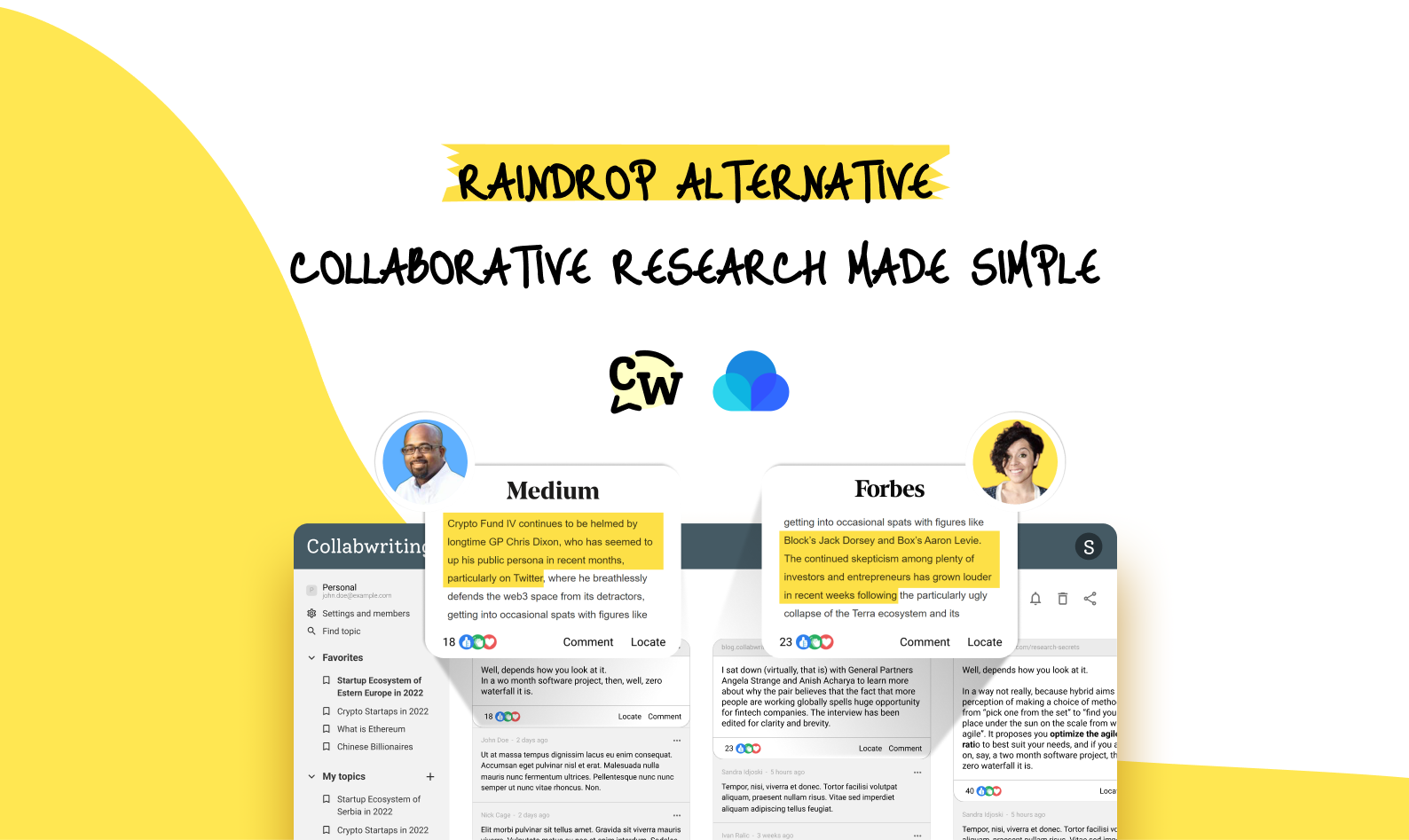Have you ever poured your heart and soul into a piece of writing, only to hit "publish" and hear the silence? No likes, no shares, no comments - just the deafening sound of crickets. 🦗
Don't despair yet.
Becoming a better writer isn't just about reading advice and hoping for the best - it's about putting that advice into practice and finding what works best for you.
And sure, not every tip will work for everyone, but that's all the more reason to experiment and discover what works for your unique style.
Whether you're writing a blog post, newsletter, or social caption, your goal is to stop the scroll and make your content stick.
Here's how to do it - backed by strategy, examples, and 2025's biggest trends.
Craft Headlines That Pull Readers In
Strong content begins with a headline that earns attention, and an intro that keeps it.
Your headline is the first impression, so make it count: use clear, action-oriented language that sparks curiosity or emotion.
Example: "Publishing got you ignored? Here’s how to stop the silence."
Then back it up with an intro that pulls the reader in.
- Ask a bold question
- Drop a surprising fact
- Tell a quick story that connects directly to the topic
- Add a personal anecdote or a "you" statement right away
A great hook doesn't just inform - it makes people want to keep reading.
For example, if you're writing an article on how to write a book, why not start with a personal anecdote about how you wrote one in just one year?
By sharing your journey with your readers, from your initial desire to write a book to the obstacles you faced along the way, you can show them that anything is possible with determination and perseverance.
And, by keeping your story concise and focused on the key moments that shaped your experience, you can make a deep and lasting connection with your audience.
This will leave them feeling inspired and motivated.
Use an active voice to add energy to your writing
Want to write with more clarity, impact, and excitement?
Use the active voice and stick to the subject-verb-object sentence structure.
With an active voice, you can showcase the actions of your subject. This adds a sense of immediacy and energy to your writing that can capture your readers from the very first word.
Tell a Story People Can See Themselves In
You don't need stats to be persuasive. You need a story.
A quick personal story or a customer moment can go a long way. It helps your reader connect, care, and remember what you said.
You can use:
- A challenge someone faced
- A lesson learned the hard way
- A real moment that shows what your brand/product helps with
Stories work because they make the content more human, and humans remember emotions better than facts.
Tip: Cliffhangers, character moments, or even a good quote can pull your reader in fast.
Use Visuals & Microformats
How your content looks matters just as much as what it says. People tend to skim online, so breaking up text with visuals and formatting helps keep them interested.
- Infographics are great because they let readers understand complex info quickly. Studies show people absorb visuals 70% faster than plain text.
- Images and charts grab attention and make your points more memorable.
- Even simple formatting tricks like subheadings, bullet points, and bold text help readers scan your content and find what matters most.
- Adding a funny meme or a relevant photo can also make your content more enjoyable and shareable.
Basically, a well-formatted post isn't just easier to read, it also invites people to stay longer, engage more, and come back next time.
Make It Interactive
If you want people to stick around and interact with your content, make it easy and fun for them to participate.
- Add a quick poll or quiz to spark curiosity and get instant feedback.
- Embed a short video or audio clip to mix things up and appeal to different learning styles.
- Use a call to action (CTA) that invites readers to reply, comment, or share their thoughts, not just click a link.
When you turn your readers into active participants, they feel more connected and invested in what you share.
"News quizzes turn readers into participants" - Wired
Don't Let Readers Doubt You - Back Up Your Claims
As a writer, you can sway opinions and influence people with your words. But with that power comes an enormous responsibility.
You can't make bold statements without research to back them up.
Sure, some readers might believe everything they read, but most won't take you at your word. If you want to gain their trust, you need to provide solid facts to support your claims.
So always double-check your sources, quote accurately, and back up what you say with studies and research.
When you do this, you're not just building credibility, you're also building a relationship with your readers.
Adapt Your Content for Each Platform
Different platforms mean different rules. What works great on LinkedIn might not land the same way on Substack or your blog.
- On social media: Keep it short, punchy, and visual. Use eye-catching images, quick videos, or bold statements to grab attention fast.
- In newsletters: Be personal and thoughtful. Share insights, stories, or useful tips your readers can look forward to regularly. Consistency builds trust.
- On blogs: Make your posts easy to skim with clear headings, short paragraphs, and bullet points. Use keywords smartly to help your content get found in search engines.
Adapting your style this way helps you connect better with your audience, no matter where they find you.
Be Direct and Straightforward
Effective writing is straightforward and to the point.
Cut out unnecessary words and phrases, such as excessive adverbs and prepositions, that only serve to bog down a sentence.
Instead, express your ideas clearly and concisely, saying precisely what you mean without unnecessary fluff.
Remember, every word counts, so make sure each adds value to your writing.
Be Human, Not Perfect
Your readers want to hear you, not a robot.
- Write like you talk, just a bit tighter and clearer.
- Use contractions like don't, won't, and you're to keep it natural.
- Speak confidently. Don't hide behind "might" or "could". Own your opinions.
Honest, straightforward writing beats over-polished fluff every time. People connect with realness.

Try It. Test It. Tweak It.
There's no magic formula for perfect content, but there is valuable feedback.
Keep an eye on your analytics, listen to what readers say in comments, and experiment with different formats.
Engagement is a process, not a guess.
Good Writing And Thorough Editing Go Hand In Hand
Writing is just the beginning of the journey, but it's during the editing process that the real magic happens.
Don't underestimate its power, especially if you're aspiring to become a professional writer.
The 1st step - Do a deep dive
You can't escape the inevitable - rewriting your introduction (even the conclusion). Trust me, every writer knows the struggle of perfecting that opening line.
Once you've tackled the intro, you must go sentence by sentence and ask yourself, "Does this sentence have a purpose?"
It's time to be ruthless. Cut out entire paragraphs, rearrange sections, and add some meat to those bare bones.
The 2nd step - Polishing and refining
Now it's time to get into the nitty-gritty details of your piece and fix all the surface-level mistakes like spelling and grammar errors.
And here's a pro tip: read your work out loud! By doing so, you'll be able to hear the rhythm and flow of your writing, and you'll quickly catch any sentences that sound awkward or clunky.
Keep in mind that every sentence should have a purpose, and if you find yourself stumbling over your words or feeling confused, it's time to rework that sentence.
Strive To Deliver Valuable Content
Good writing means giving your readers something meaningful that sticks with them long after they finish reading.
Anyone can throw together a quick list of tips, but that rarely leaves a lasting impression. What really matters is making every word count. Skip the fluff and recycled advice.
Focus on delivering unique insights, fresh stories, or helpful information that your readers can't find anywhere else. That's how you stand out as a writer.
When editing, ask yourself:
- Have I included relatable stories or examples, from my own experience or others’, to support my point?
- Did I back up my claims with reliable sources like studies or research?
- Did I explain my ideas fully, or just skim the surface?
- As a reader, what more would I want to know or understand better?
Use these questions to dig deeper and make your content truly valuable.
Wrapping Up
Writing content online is a whole different game compared to other types of writing. The competition is tough, and with so many distractions, your content needs to not just engage but hold your readers' attention from start to finish.
It's a journey without an endpoint. Even the best writers know there's always room to grow.
But with consistent practice and the tips shared here, you can sharpen your skills and create content that truly connects with your audience.
Whether you're just getting started or already a pro, keep practicing! Stick with it, and soon enough, you'll be amazed at how far you've come.




![The Best Tool for Collaborative Research in Content Marketing Teams [2026]](/content/images/2025/12/image--5-.png)

![5 Tools Marketers Use to Organize Research - Compared [2026]](/content/images/2025/11/cover-4-1.png)

![Build Credibility in Research: Smart Way to Verify Information and Track Sources Easily [2025]](/content/images/2025/10/covers-for-blog--7--1.png)

![How Marketers Can Turn LinkedIn Content into Collaborative Research [2025]](/content/images/2025/10/covers-for-blog--8-.png)
![Best Readwise Alternative for Personal & Team Research [2026]](/content/images/2025/09/Frame-814--3-.png)

